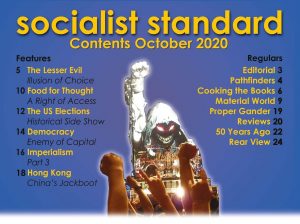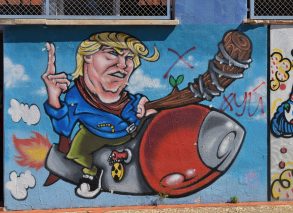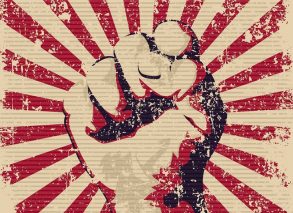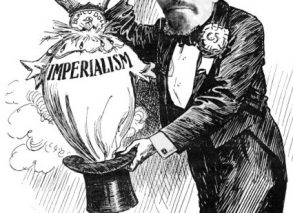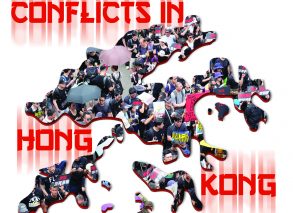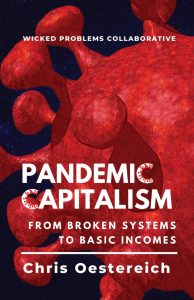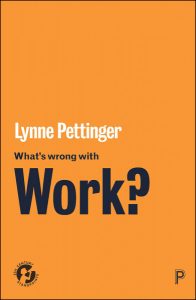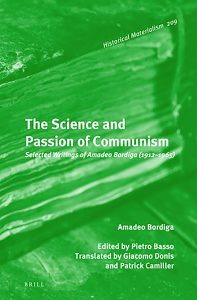Scotland has a tradition of common property rights. They include rights arising from commonties, grazing rights, peat-cutting rights, salmon rights, rights to use harbours and foreshore, mineral rights, sporting use rights, ownership rights, rights to usufruct, rights of access to resources and rights of passage over land and inland water. Commonty in Scots Law means; a piece of land in which two or more persons have a common right. A widespread example of such common property is living in a tenement. Those who own or rent a flat also hold other parts of the property, e.g. the stairs or close (and have its common responsibility – your turn to clean the stairs!) and access to the communal back-garden It does not mean state-owned or public-land but could be parish/burgh land.
It is estimated that half the land area of Scotland was still common land in 1500. They provided areas of free access. It was not a “free for all” but their use was covered by sets of rules that were well established and understood locally. No-one could make financial profit. The resources of the commonty were solely for personal uses, and individuals could not, for instance, cut timber for sale or rent grazing to someone else. By the mid 19th century, virtually all this common land had been divided into the private property of neighbouring land owners. Subsistence farming could not survive without access to the resources that the commons traditionally supplied and their loss was a major factor in forcing local people to abandon the way of life that had sustained generations before them and join the mass of people leaving the Scottish countryside.
“Ferm touns” or collective farm settlements, of Scotland’s subsistence agriculture, which survived in northern areas into the 19th century, were a traditional arrangement that typically could not have survived without the resources provided by a commonty which provided many of the resources needed by a community at no cost apart from the inhabitants’ own labour.
Crown Commons were land held directly by the Crown and are thought to have originated out of the once extensive Royal Hunting Forests. The lands that became Crown Commons were areas within those forests where traditional communal use, which had predated the establishment of the forests, continued after the system of forests broke down in the medieval period. While these Commons were most heavily used by people living nearby, anyone unconnected with the area could also use them. Crown Commons had certainly largely disappeared by the early 19th century. An Act in 1828 allowed for their division and the land was then shared out between the adjoining land owners.
A green is a small area of common land usually closely associated with a settlement, whether a town or village or single clachan. These greens provided an area where cows could be milked, markets and other events held, garments bleached and a host of other common and communal activities carried out. The greens associated with many fishing communities were used for the drying and repairing of nets, the salting and drying of fish and other related activities. One specific type of green were the overnight and river crossing stances associated with traditional routes and drove roads.
A loan was a common route through private property to and from an area of common land or some other ‘public’ place. The distinction between this and a right of way was that the loan was itself common land and not just a right of use. Their former existence of others is indicated by street and place names, like Loanhead.
A moss is a wet area where peats can be dug and historically many were used in common by local inhabitants. Common mosses were the same form of shared property. The common status of surviving common mosses has often gone unnoticed because they have been of relatively little use since the decline of peat cutting in the eastern and central Highlands.
Rigs were narrow strips of cultivated land, sometimes up to around 15 metres wide. Traditionally, adjacent rigs were used by different cultivators and the rigs periodically re-allocated between them. This system was known as runrig. Lands lying runrig were invariably associated with an area of rough ground or hill land that was also shared in common. These two types of land were the longstanding basis of farming in Scotland before the Improvements of the 18th and 19th centuries. Originally, many areas of runrig, together with their shared hill ground, were held by two or more proprietors. Each owned a number of rigs, which were interspersed with the rigs of the other owners and each owner had an undivided share of the ownership of the common hill. The common hill was thus a commonty and the runrig lands equivalent to a commonty on arable land.(Bishopbriggs was originally Bishoprigs)
Burghs were established in Scotland from the 12th century. The creation of Royal Burghs was to provide the Crown with a convenient counter-balance to a feudal aristocracy which threatened to assume supreme power in the State. It was necessary that the King’s burgesses should have absolute freedom from the jurisdiction of the neighbouring baron and should have an adequate patrimony. The Kings, therefore, granted wide privileges and vast territorial estates for the common good use of their chartered burghs. In 1617 the jurisdiction of the Magistrates of Rutherglen extended from Polmadie on the south side of the river Clyde to Carron; the entire parish of Ayr at one time belonged to the Burgh of Ayr; Aberdeen once possessed lands which extended many miles in circuit round Aberdeen, granted by the Kings of Scotland, for the use of the town. Edinburgh’s common land, the Burgh Muir had a total area of approximately 5 square miles. The last open area of common land remaining of the Burgh Muir is now Bruntsfield Links. The Border towns still retain the tradition of the annual Common Ridings, reasserting the boundaries of it.
The vast territories granted to Scotland’s Royal Burghs were designed to act as a bulwark against noble power. Labour politician Thomas Johnson wrote extensively about Burgh commons and its loss, being a sympathiser of “municipal socialism” and nationalisation. According to Johnston, such acreages, together with other common lands, extended in the latter part of the sixteenth century to fully one half of the entire area of Scotland.
But this valuable inheritance did not to last long:
“Until the Burgh Reform Act of 1833 the landowners and the commercial bourgeois class controlled all burghal administration of the common lands, and controlled it in such a way that vast areas of common lands were quietly appropriated, trust funds wholly disappeared, and to such a length did the plunder and the corruption develop, that some ancient burghs with valuable patrimonies went bankrupt, some disappeared altogether from the map of Scotland, some had their charters confiscated, and those which survived to the middle of the nineteenth century were left mere miserable starved caricatures of their former greatness, their Common Good funds gone, their lands fenced in private ownership, and their treasurers faced often with crushing debts. As late as 1800 there were great common properties extant; many burghs, towns and villages owned lands and mosses; Forres engaged in municipal timbergrowing; Fortrose owned claypits; Glasgow owned quarries and coalfields; Hamilton owned a coal pit; Irvine had mills, farms and a loom shop ….”
By the time the Royal Commission on Municipal Corporations in Scotland reported in 1835.
“Wick had lost in the law courts its limited right of commonty over the hill of Wick, and owned no property; Abernethy owned nothing, nor did Alloa. Bathgate was the proud possessor of the site of a fountain and a right of servitude over four and a half acres of moorland. Beith had no local government of any kind; Bo’ness owned nothing; Castle-Douglas owned only a shop; Coldstream was stripped bare, not even possessing ‘rights in its street dung’; Crieff had two fields; Dalkeith nothing; Dunkeld nothing; and Dunoon, nothing””
Even the towns which did not hold their charters from the Crown, but from the neighbouring baron, possessed wide territories of commonity. The lands over, which property rights and privileges of use were held by the burgh were the burgh commons. The loss of the burgh commons stemmed in large part from an Act of the Scots Parliament in 1469. This Act had suppressed the popular election of Councils and led to the dominance of burghs by local land owners and wealthy merchants. The evidence in the reports shows how these land owners and merchants, with their relations and allies, had appropriated the burgh commons to themselves through generous land grants and cheap feus.
Professor Cosmo Innes (1798-1874), Advocate and Professor of Constitutional Law and History wrote in his Scotch Legal Antiquities,
“Looking over our country, the land held in common was of vast extent. In truth, the arable – the cultivated land of Scotland, the land early appropriated and held by charter – is a narrow strip on the river bank or beside the sea. The inland, the upland, the moor, the mountain were really not occupied at all for agricultural purposes, or served only to keep the poor and their cattle from starving. They were not thought of when charters were made and lands feudalised. Now as cultivation increased, the tendency in the agricultural mind was to occupy these wide commons, and our lawyers lent themselves to appropriate the poor man’s grazing to the neighbouring baron. They pointed to his charter with its clause of parts and pertinents, with its general clause of mosses and moors – clauses taken from the style book, not with any reference to the territory conveyed in that charter; and although the charter was hundreds of years old, and the lord had never possessed any of the common, when it came to be divided, the lord got the whole that was allocated to the estate, and the poor cottar none. The poor had no lawyers.”
From another blog-post related to this thread
…The landowning establishment among Scotland’s elite continue to have their links into financial and money-making circles, as well as considerable cultural power. The “mighty magnates” of 19th century Scotland – the men (and some women) who headed the great houses – were essentially a rentier rather than an entrepreneurial class, making their money from rents and investments. They were sufficiently astute to invest in the new industrial capitalism which ran Scotland economically and politically for so long, while being strongly represented on the boards of the major banks and finance houses. At the turn of the century, The Marquess of Linlithgow, for example, was a director of the Bank of Scotland, and Standard Life; the Duke of Buccleuch, of the Royal Bank, Standard Life and Scottish Equitable; the Earl of Mansfield, of the National Bank, and Scottish Equitable; and the Marquess of Tweeddale, of the Commercial Bank, Edinburgh Life, and Scottish Widows. Such hegemony has, of course, eroded significantly with the decline of indigenous Scottish capitalism and its replacement with multinational corporations. Nevertheless, the banks and finance houses still find it useful to have titled property represented on the board. …
Again, this is a very interesting thread of history, but i do feel it neglects the relevance to workers of today. At least the blog relates the past to the current purchases of land by the community. The latest being in the Borders from the estate of the Duke of Buccleuch
”everyone has a right to a deer from the hill, a tree from the forest, and a salmon from the river” – An old Highland saying
The stageist conception of history may be viewed from a distance but close-up there were anomalies
Coal miners in Scotland, and their families, were bound to the colliery in which they worked and the service of its owner. This bondage was set into law by an Act of Parliament in 1606, which ordained that “no person should fee, hire or conduce and salters, colliers or coal bearers without a written authority from the master whom they had last served”. The cruel edict reduced the Scottish collier to the position of a serf or a slave. By that Act, workmen in mines, whether miners, pickmen, winding-men, firemen, or in any other service of the mine, were prohibited from leaving that service either in hope of greater gain or of greater ease, or for any other reason, without the consent of the coal-owner, or of the Sheriff of the County; and any one receiving a runaway into his service and refusing to return him within twenty-four hours was to be fined one hundred pounds Scots. A collier lacking such written authority could be “reclaimed” by his former master “within a year and a day”. If the new master did not surrender the collier, he could be fined and the collier who deserted was considered to be a thief and punished accordingly. The Act also gave the coal owners and masters the powers to to apprehend “vagabonds and sturdy beggars” and put them to work in the mines. A further Act of 1641 extended those enslaved to include other workers in the mines and forced the colliers to work six days a week. The Habeas Corpus Act of Scotland, in 1701, which declared that “the imprisonment of persons without expressing the reasons thereof, and delaying to put them to trial is contrary to law”; and that “no person shall hereafter be imprisoned for custody in order to take his trial for any crime or offence without a warrant or writ expressing the particular cause for which he is imprisoned” specifically stated “that this present Act is in no way to be extended to colliers and salters.”
It wasn’t until 1799 when an Act was passed that all colliers in Scotland were “to be free from their servitude”.








